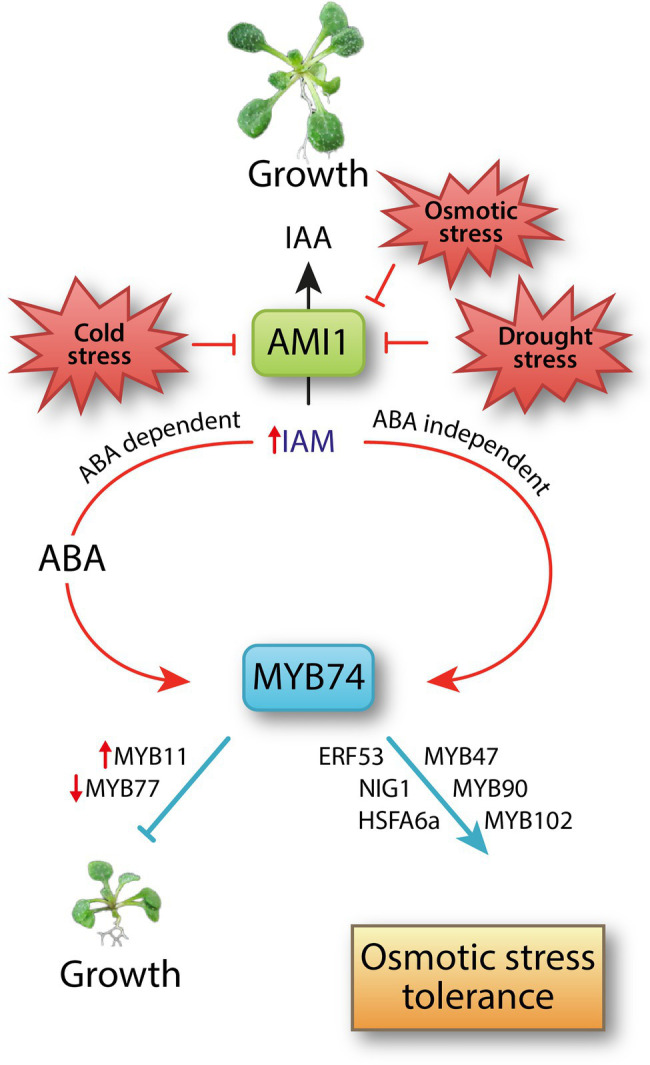Figure 6.

A model summarizing the IAM accumulation-mediated transcriptional activation of MYB74. Abiotic stresses, including osmotic stress, suppress the expression of AMI1 (Perera et al., 2008; Lehmann et al., 2010), which translates into an accumulation of IAM. The auxin precursor IAM triggers ABA biosynthesis (Pérez-Alonso et al., 2021a). Here, we demonstrated an ABA dependent and an ABA independent transcriptional activation of abiotic stress-related TF MYB74. IAM directly induces the expression of MYB74. The IAM-mediated accumulation of MYB74 results in the transcriptional reprogramming of many osmotic stress-related genes, including further MYB factors, such as the dehydration stress memory gene MYB47 (Ding et al., 2013) and the abiotic stress-related genes MYB90 and MYB102 (Denekamp and Smeekens, 2003; Li et al., 2018a), the ethylene response factor ERF53 (Hsieh et al., 2013), the basic helix–loop–helix factor NIG1 (Kim and Kim, 2006), and the ABA-responsive heat shock response factor HSFA6a (Hwang et al., 2014). Consequently, MYB74 is assumed to integrate ABA dependent and independent signals and to be involved in plant responses to osmotic stress. At the time, the accumulation of MYB74 suppresses plant growth considerably, possibly through the transcriptional activation of MYB11, which is known to be capable of delaying plant development (Petroni et al., 2008), and the repression of MYB77 expression. MYB77 is involved in the modulation of auxin signal transduction and the control of lateral root formation (Shin et al., 2007).
